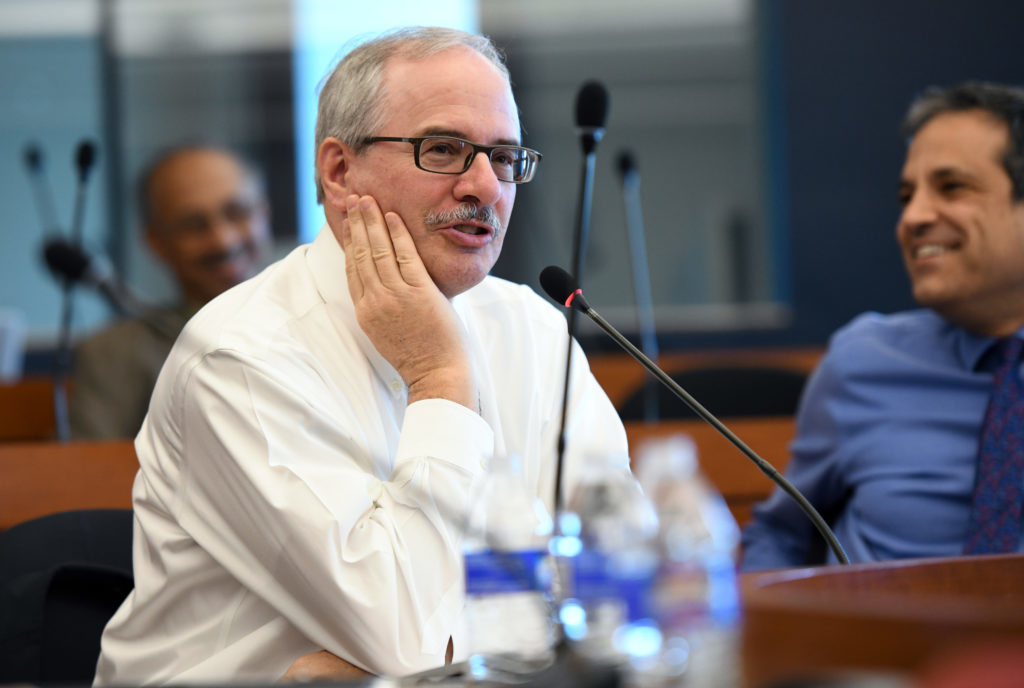A group of top administrators will meet over the next several months to develop a plan to improve GW’s institutional culture.
Six administrators convened for the first time earlier this month with two goals: to define what the institutional culture at GW is and identify ways to improve it. Officials said the team – which will meet bimonthly – will develop a strategy to strengthen ties to the University among students, faculty, staff and alumni as they work to address GW’s bureaucratic culture.
University spokeswoman Lindsay Hamilton said the group will focus on ways to examine and improve campus culture including identifying process areas that can be immediately improved, issuing surveys to assess institutional culture and determining ways to increase “University identity.” Officials launched a new website earlier this month to track LeBlanc’s major goals, including the student experience, research and institutional culture.
Hamilton said the group, consisting of top administrators like Vice Provost for Enrollment Management and Retention Laurie Koehler and Vice Provost for Faculty Affairs Christopher Bracey, will develop an assessment strategy by this summer. The strategy will be used to develop guiding principles and collect feedback about improving the environment at the University, she said.
“Improving our institutional culture must be a shared mission, which is why so many leaders at the University are working together on this,” Hamilton said.
Hamilton said the group of administrators is open to various solutions, but declined to give specifics about solutions being discussed.
After LeBlanc came to GW in the fall, faculty said improving staff and faculty interactions with officials would help the University become less bureaucratic if he followed through. LeBlanc announced in February that he had changed the winter holiday schedule and three-day weekend policy to improve employee morale.
Harald Griesshammer, a professor of physics, said it is encouraging that administrators are taking steps to address faculty and staff concerns about the University’s transactional nature.
LeBlanc has said from the beginning of the year that he would focus on improving an institutional culture that he heard from students was not service-oriented.
“It gives people the confidence that not only do they have a voice, but that their voice is heard,” Griesshammer said.
As officials further delve into the institutional culture at GW, Griesshammer said he expects them to find that faculty and staff believe administrators focus too much on money and expenditures.
“I think it’s very important President LeBlanc should make clear that the money has to follow the academic mission and not the other way around,” he said.
Xiao-Ping Chen, a professor of management at the University of Washington, said if administrators are trying to determine why employee culture is transactional and doesn’t have a service mentality, then the assessment should include questions about whether or not employees and faculty feel satisfied in their jobs and their attitudes toward University policies.
At the University of Washington, Chen said faculty and staff can choose to complete an anonymous feedback survey to tell officials about the full scope of the problems faculty face. Faculty and employees will appreciate the chance to have their voices heard, she said.
“It really shows that the president cares about what’s going on,” Chen said.
She said administrators should be clear about how they plan to address institutional culture once faculty and staff voice concerns – an effort to build confidence that administrators are genuine in their efforts to improve the culture.
“If the participation is really low, people don’t really think it is serious,” she said.




